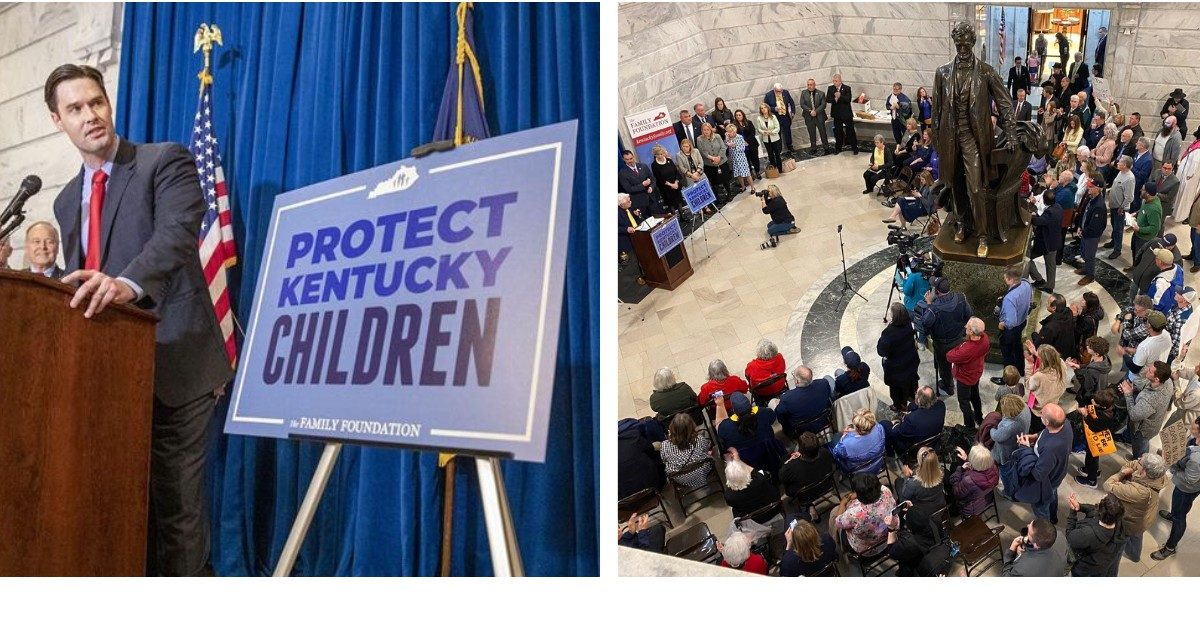In the late hours of the night at the end of the 2023 legislative session, pro-family leaders, including members of TFF’s team, Sen. Gex Williams, and Rep. Jennifer Decker, huddled together to craft a strategy to revive the ban on gender “transitions” on minors. Hours earlier, moderate Republicans and Democrats successfully sabotaged a strong bill on the subject by passing an amendment from Sen. Danny Carroll, which would have actually legalized “transition” hormones for minors. Thankfully, Sen. Gex Williams was able to table the amended bill, preventing the disastrous amendment from proceeding any further.
The product of this overnight strategy session was SB 150, a bill that started as a small parental rights bill that transformed into a vehicle for major pro-family policy wins. The next day, a House committee added provisions to the original SB 150 to produce the bill that ended up becoming law. This revised bill then passed the House, and the Senate concurred with the changes the House made. Ultimately, Gov. Beshear vetoed the bill, but the Republican supermajorities overrode that veto. However, SB 150’s story did not end there.
Shortly after the General Assembly overrode Beshear’s veto of SB 150, the ACLU and radical LGBT advocates sued to block the law, arguing that it violates the U.S. Constitution. An activist Obama-appointed judge at the district court agreed and blocked the law. However, the Sixth Circuit reversed and allowed Kentucky to fully implement SB 150. The Sixth Circuit also allowed Tennessee to implement its ban on gender “transitions” on minors, and this law is what the U.S. Supreme Court considered in the Skrmetti case.
In his majority opinion upholding Tennessee’s ban on gender “transitions” on minors, Chief Justice John Roberts wrote that policy decision surrounding this topic should be left “to the people, their elected representatives, and the democratic process.” To put it simply, the Constitution is silent on this area of policy, and judges have no role in interfering with the policy decisions of duly elected officials. Justice Thomas wrote a concurring opinion chastising those who sought to make supposed experts the arbiter of law, stating, “experts and elites have been wrong before—and they may prove to be wrong again.”
The Supreme Court’s opinion ensures that kids remain protected in Kentucky from gender “transitions.” And it also vindicates those who worked so hard to ensure that this law passed, including our faithful supporters who made thousands of phone calls and messages in support of SB 150.
Click here to view and download the PDF of the print version of the Citizen paper.

